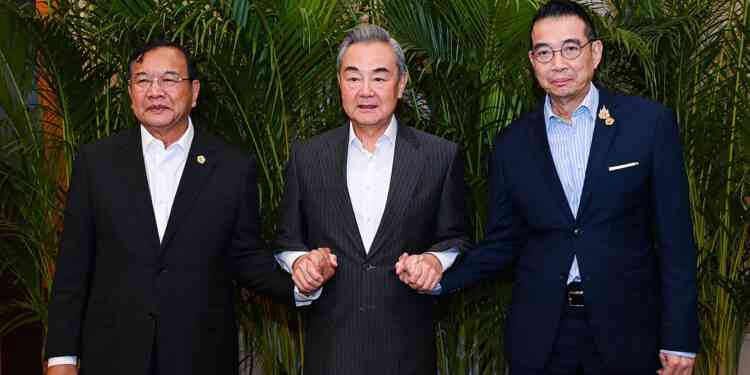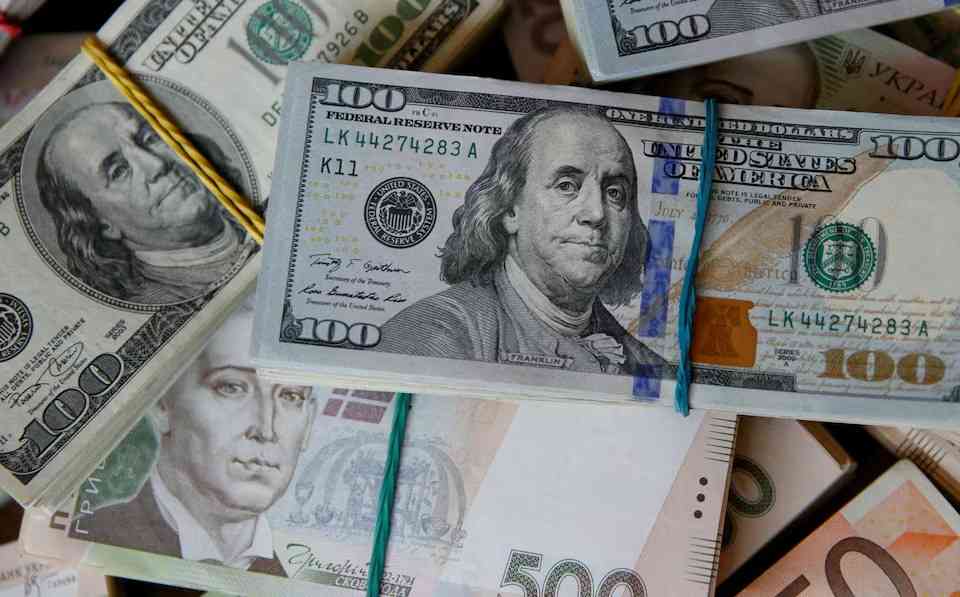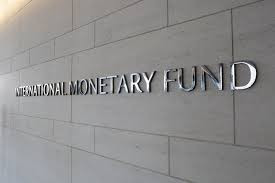
Spain, Ireland and Norway said Wednesday that they would recognize a Palestinian state on May 28, a step toward a long-held Palestinian aspiration that came amid international outrage over the civilian death toll and humanitarian crisis in the Gaza Strip following Israel’s offensive.
The almost simultaneous decisions by two European Union countries, and Norway, may generate momentum for the recognition of a Palestinian state by other EU countries and could spur further steps at the United Nations, deepening Israel’s isolation.
Currently, seven member of the 27-nation European Union officially recognize a Palestinian state. Five of them are former east bloc countries who announced recognition in 1988, as did Cyprus, before joining the bloc. Sweden announced recognition in 2014.
The Czech Republic, an EU member, says that the 1988 recognition by the former Czechoslovakia — of which it then formed a part — does not apply to the modern state. Slovakia has not so far said whether its part of that recognition still stands.
EU members Malta and Slovenia say they may follow suit.
Some 140 of the about 190 countries represented in the U.N. have already recognized a Palestinian state.
Here’s a look at how and why the new European announcements could be important:
WHY DOES IT MATTER?
A U.N. partition plan in 1947 called for the creation of a Jewish state alongside a Palestinian state, but Palestinians and the wider Arab world rejected it because it would have given them less than half of the land even though Palestinians made up two-thirds of the population.
The Arab-Israeli war the following year left Israel with even more territory, Jordan in control of the West Bank and east Jerusalem, and Egypt in control of Gaza.
In the 1967 war, Israel seized all three territories, and decades of on-again, off-again peace talks have failed.
The United States, Britain and other Western countries have backed the idea of an independent Palestinian state existing alongside Israel as a solution to the Middle East’s most intractable conflict, but they insist Palestinian statehood should come as part of a negotiated settlement. There have been no substantive negotiations since 2009.
Though the EU countries and Norway won’t be recognizing an existing state, just the possibility of one, the symbolism helps enhance the Palestinians’ international standing and heaps more pressure on Israel to open negotiations on ending the war.
Also, the move lends additional prominence to the Middle East issue ahead of June 6-9 elections to the European Parliament.
WHY NOW?
Diplomatic pressure on Israel has grown as the battle with Hamas stretches into its eighth month. The U.N. General Assembly voted by a significant margin on May 11 to grant new “rights and privileges” to Palestine in a sign of growing international support for a vote on full voting membership. The Palestinian Authority currently has observer status.
The leaders of Spain, Ireland, Malta and Slovenia said in March they were considering recognizing a Palestinian state as “a positive contribution” toward ending the war.
Spanish Prime Minister Pedro Sánchez said Wednesday, “This recognition is not against anyone, it is not against the Israeli people,” he said. “It is an act in favor of peace, justice and moral consistency.”
Norwegian Foreign Minister Espen Barth Eide told The Associated Press that while the country has supported the establishment of a Palestinian state for decades, recognition is “a card that you can play once.”
“We used to think that recognition would come at the end of a process,” he said. “Now we have realized that recognition should come as an impetus, as a strengthening of a process.”
WHAT ARE THE IMPLICATIONS OF RECOGNITION?
While dozens of countries have recognized a Palestinian state, none of the major Western powers has done so, and it is unclear how much of a difference the move by the three countries might make.
Even so, their recognition would mark a significant accomplishment for the Palestinians, who believe it confers international legitimacy on their struggle. Norway said it will upgrade its representative’s office for Palestine to an embassy but it was not clear what Ireland and Spain will do.
Little would likely change on the ground in the short term. Peace talks are stalled, and Israel’s hardline government has dug its heels in against Palestinian statehood.
WHAT IS ISRAEL’S RESPONSE?
Israel reacted rapidly Wednesday by recalling its ambassadors to Ireland, Norway and Spain.
The Israeli government slams talk of Palestinian independence as a “reward” for the Hamas Oct. 7 attack on southern Israel that killed 1,200 people and led to the abduction of over 250 others. It rejects any move to legitimize the Palestinians internationally.
Steps like the ones by the three European countries Wednesday will harden the Palestinian position and undermine the negotiating process, Israel says, insisting that all issues should be solved through negotiations.
Israel often responds to foreign countries’ decisions deemed as going against its interests by summoning those countries’ ambassadors and also punishing the Palestinians through measures such as freezing tax transfers to the cash-strapped Palestinian Authority.
WHO RECOGNIZES A PALESTINIAN
STATE?
Some 140 countries have already recognized a Palestinian, more than two-thirds of the United Nations’ membership.
Some major powers have indicated their stance may be evolving amid the outcry over the consequences of Israel’s offensive in Gaza, which has killed more than 35,000 Palestinians according to Gaza’s Health Ministry. The ministry does not distinguish between noncombatants and fighters in its count.
British Foreign Secretary David Cameron said no recognition of a Palestinian state could come while Hamas remains in Gaza, but that it could happen while Israeli negotiations with Palestinian leaders were in progress.
France indicated that it isn’t ready to join other countries in recognizing a Palestinian state, even if it isn’t opposed to the idea in principle. French Foreign Minister Stéphane Séjourné, in comments relayed by his ministry after a closed-door meeting with his Israeli counterpart on Wednesday, said that recognizing a Palestinian state must be “useful” in pushing forward a two-state solution and suggested that doing so now won’t have a genuine impact in pursuing that goal.









